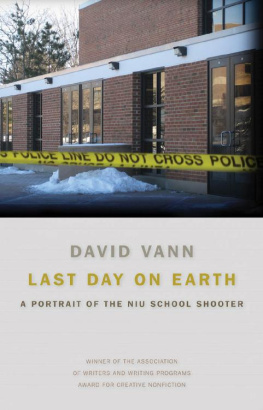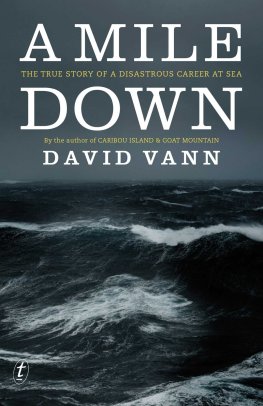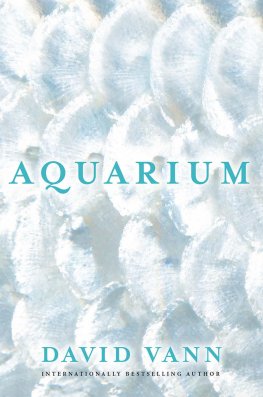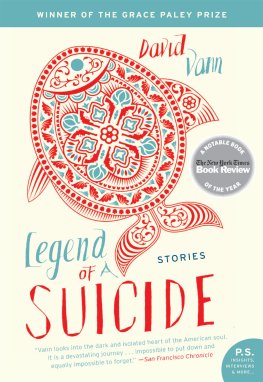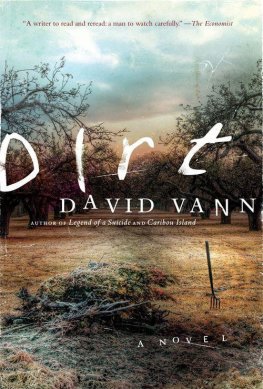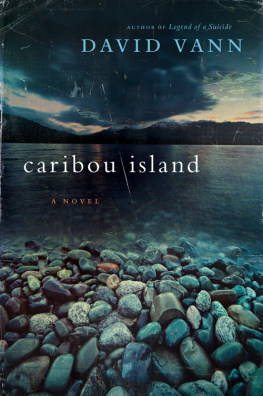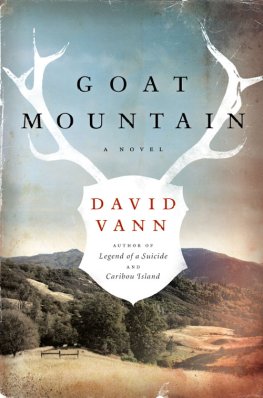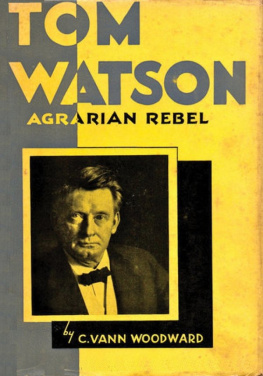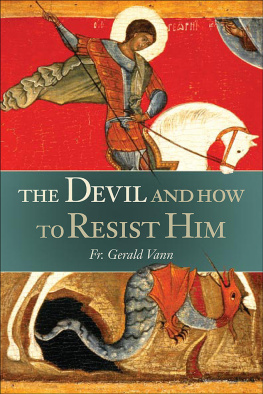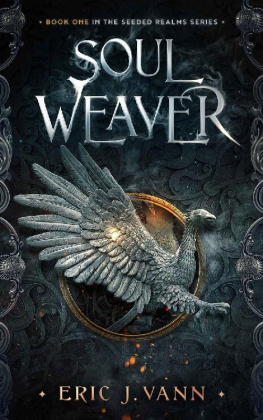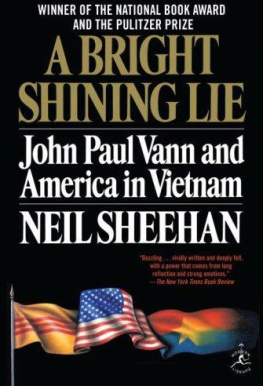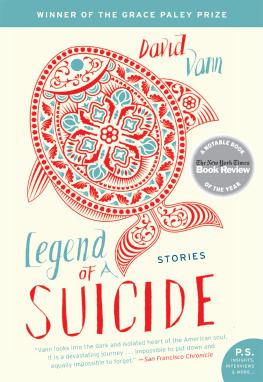David Vann - Last Day on Earth
Here you can read online David Vann - Last Day on Earth full text of the book (entire story) in english for free. Download pdf and epub, get meaning, cover and reviews about this ebook. year: 2011, publisher: The University of Georgia Press, genre: Detective and thriller. Description of the work, (preface) as well as reviews are available. Best literature library LitArk.com created for fans of good reading and offers a wide selection of genres:
Romance novel
Science fiction
Adventure
Detective
Science
History
Home and family
Prose
Art
Politics
Computer
Non-fiction
Religion
Business
Children
Humor
Choose a favorite category and find really read worthwhile books. Enjoy immersion in the world of imagination, feel the emotions of the characters or learn something new for yourself, make an fascinating discovery.
- Book:Last Day on Earth
- Author:
- Publisher:The University of Georgia Press
- Genre:
- Year:2011
- Rating:3 / 5
- Favourites:Add to favourites
- Your mark:
- 60
- 1
- 2
- 3
- 4
- 5
Last Day on Earth: summary, description and annotation
We offer to read an annotation, description, summary or preface (depends on what the author of the book "Last Day on Earth" wrote himself). If you haven't found the necessary information about the book — write in the comments, we will try to find it.
Last Day on Earth — read online for free the complete book (whole text) full work
Below is the text of the book, divided by pages. System saving the place of the last page read, allows you to conveniently read the book "Last Day on Earth" online for free, without having to search again every time where you left off. Put a bookmark, and you can go to the page where you finished reading at any time.
Font size:
Interval:
Bookmark:
I owe enormous thanks to my editor Tyler Cabot at Esquire. He assigned this story to me, then worked tirelessly, every day, for months, through the entire grueling process of interviews, writing, editing, and fact-checking. The two of us were equally familiar with more than a thousand pages of information from the police files in addition to all the interviews, and it was an amazing conversation, the closest collaboration Ill ever have with anyone. This is his book as much as mine.
I also must thank Terry Noland at Mens Journal, who assigned an essay, My Fathers Guns, which became an important part of this book, and the National Endowment for the Arts for generous support while I was writing. The Association of Writers and Writing Programs has now plucked two of my books from oblivion and given them a life, so I cant say thank you enough to them, or to the contest judge, Lee Gutkind, and its been wonderful to work with the University of Georgia Press, just as it was wonderful to work with the University of Massachusetts Press.
I greatly admire Jim Thomas for his generosity, intelligence, and strength to pursue the truth even when its uncomfortable, and I was surprised that so many people would talk to me about such an upsetting story. Julie Creamer, Adam Holzer, and Rich Johnson, for instance, and many of Steves friends at NIU, including Aimie Rucinski and Kathryn Chiplis, and another of his professors, Kristen Myers. This is a community of generous, smart, warm people dedicating their lives to helping others, and so its terrible that this event happened to them.
Jessica and Mark will probably not be happy with some of the judgments and comments Ive made, but I want to thank them for talking openly with me, and they certainly have my full sympathies in their bereavement, as do the members of Steves family.
The book is dedicated to those traumatized by Steves shooting, and I do believe that discovering and printing the full story is worthwhile. Joe Peterson and Brian Karpes, the teacher and teaching assistant in the classroom, have told me as much. Theyve said that not knowing was worse than knowing, even though the truth is ugly.
AFTER MY FATHERS SUICIDE, I inherited all his guns. I was thirteen. Late at night, I reached behind my mothers coats in the hall closet for the barrel of my fathers .300 magnum rifle. It was cold and heavy, smelled of gun oil. I carried it down the hallway, through kitchen and pantry into the garage, where I turned on the light and gazed at it, a bear rifle with a scope, bought in Alaska for grizzlies. The world had been emptied, but this gun had a presence still, an undeniable power. My father had used it on deer. It sounded like artillery, would tear the entire shoulder off a deer hundreds of yards away. I pulled back the bolt, sighted in on a cardboard box across the garage. A box of track for an electric train, and one small rail sticking up filled the scope. I held my breath as my father had taught, squeezed carefully, slowly, heard a metallic click.
With a screwdriver, I separated stock from barrel. I put both pieces down the back of my jacket, cinched under my belt. They stuck out from my collar behind my head but were mostly hidden. I wheeled my bicycle, an old Schwinn Varsity ten-speed, out the back door and through a gate in our fence.
Our neighborhood was silent at 3:00 a.m. Cold still in early April, 1980, a light mist in the air. I huffed up a steep hill in low gear, hot in my fathers jacket, starting to sweat by the time I hit the top. Then coasted down the other side, my ears cold. Big houses, trim lawns, but several streetlights knocked out. Broken somehow, a few remaining shards of glass on the pavement below.
Up the next hill, I pulled off to the side, an undeveloped lot, tall grass and a few oak trees. I hid my bicycle behind one of them and hiked away from the houses until finally I hit a small clearing and had a view. Much of Hidden Valley, in Santa Rosa, California, lay before me.
The rifle went together quickly, and I pulled three shells from my pocket. So much powder packed into the brass. Magnum means too much powder, a bullet sent at much higher speed. I pushed all three shells into the magazine, pulled back the bolt, clicked off the safety. Sat back against the hillside with my feet planted wide, elbows on my knees, forming a base.
Through the scope, I traced houses. Went along their bedroom windows, held crosshairs on their front doors, on taillights of cars in their driveways. Finally zeroed in on a streetlight, rounded and smooth and bright, large in the scope. I could see the bulb inside. Never closer than 100 yards, most of the time two or three times that far, and most of the time, I didnt pull the trigger. It was enough simply to imagine. But sometimes that wasnt enough. Sometimes I wanted more. On those nights, I felt the blood in my temples, a pounding my father had called buck fever when we hunted deer, my breath gone, my heart become hard as a fist. I tried to steady, squeezed slowly, and felt afraid of the shock to come.
When I fired, the rifle kicked so hard it sometimes blew me flat on my back. Id had a .30-.30 since I was nine, was used to rifles, but the .300 magnum was outrageous. If I was lucky, Id hit my target and also stay upright. Nothing was more beautiful to me than the blue-white explosion of a streetlight seen through crosshairs. The sound of itthe pop that was almost a roar, then silence, then glass raincame only after each fragment and shard had sailed off or twisted glittering in the air like mist.
Dogs would bark, lights come on. And if anyone in my field of view parted their curtains to look out, I pulled back the bolt to put a new shell in the chamber, sighted in. A mans face, centered in the crosshairs, lit from his bedside lamp, the safety off and my finger held to the side, just above the trigger. I had done this with my father. When he spotted poachershunters trespassing on our landhe would have me look at them through the scope.
These were not my darkest moments that year. I imagined many things, even shooting my classmates at school. I lived a double life. A straight-A student who would become valedictorian. In student government, band, sports, etc. No one would have guessed.
So when I read about Steve Kazmierczak, a Deans Award winner who killed five students and himself at Northern Illinois University on Valentines Day 2008 and wounded eighteen others, I wondered. He was an A student. His friends and professors couldnt make any sense of what had happened. This wasnt the Steve they knew. I had never been interested in mass murderers before and couldnt have imagined reading a book about one, much less writing one, but I wondered whether Steve might offer a view into why it is that sometimes the worst part of us wins out. Why had I not ended up hurting anyone? How had I escaped, and why hadnt he?
As I investigated Steve for Esquire, as I gained access to the full fifteen-hundred-page police file that had been withheld from all othersfrom the New York Times, Chicago Tribune, Washington Post, CNNI found the story of someone who really did almost escape, who almost managed to avoid becoming a mass murderer, someone trying to make something of himself after a wretched childhood and mental health history, someone attempting the American Dream, which is not only about money but about the remaking of self. His life had been far more terrible than mine, his successes a far greater triumph, but through him I could understand, finally, the most frightening moments of my own life and also what I find most frightening about America.
STEVE GREW UP WATCHING HORROR MOVIES with his mother. Fleshy, enormous, laid out beside him on the couch. Middle of the day, and all shades are drawn. Dark. Shes protective, doesnt want Steve to go outside. Wont let him play much with other children. Shes not mentally right, according to Steves godfather, but what can he do? A family feud.
Font size:
Interval:
Bookmark:
Similar books «Last Day on Earth»
Look at similar books to Last Day on Earth. We have selected literature similar in name and meaning in the hope of providing readers with more options to find new, interesting, not yet read works.
Discussion, reviews of the book Last Day on Earth and just readers' own opinions. Leave your comments, write what you think about the work, its meaning or the main characters. Specify what exactly you liked and what you didn't like, and why you think so.

